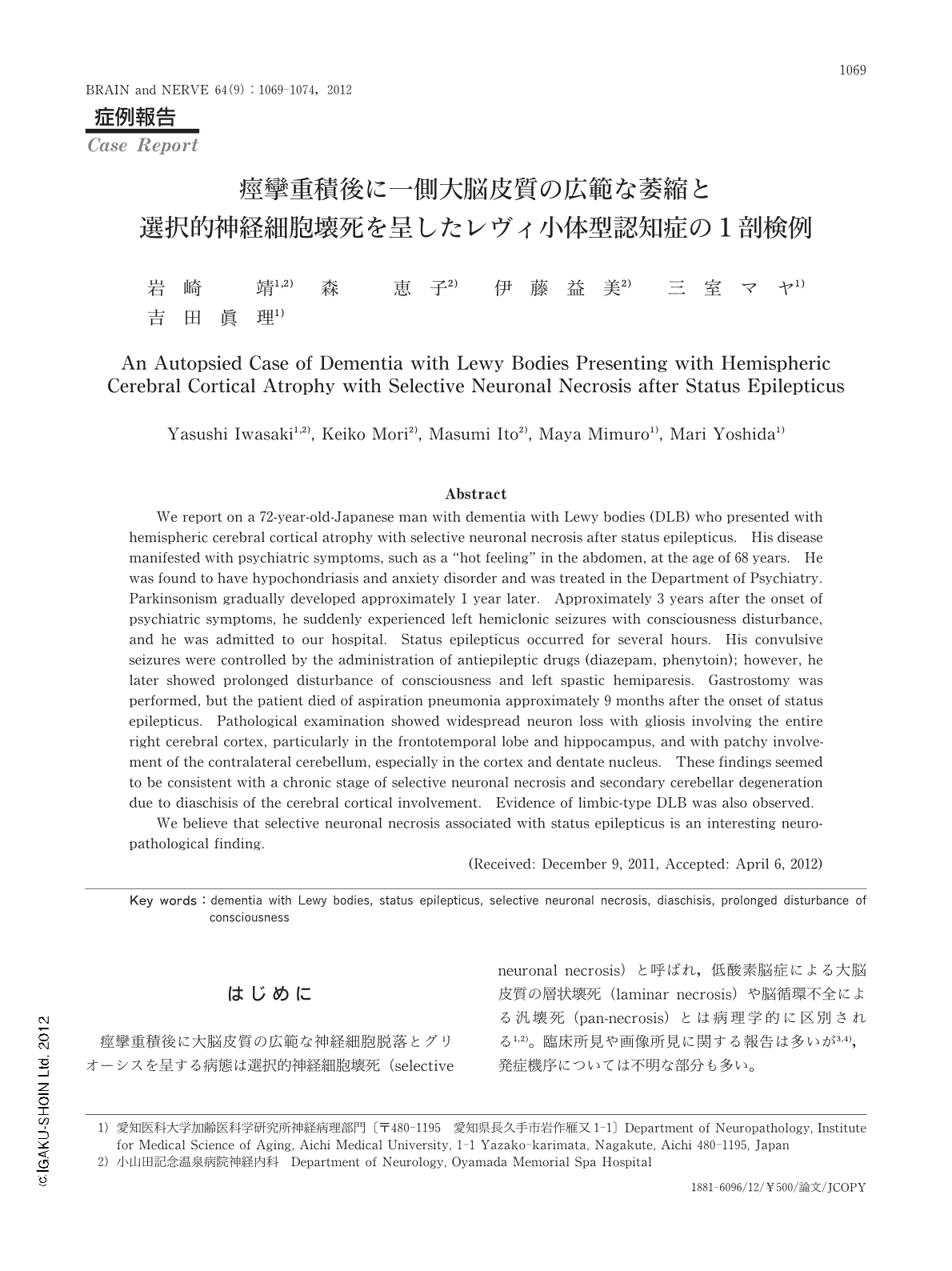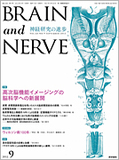Japanese
English
- 有料閲覧
- Abstract 文献概要
- 1ページ目 Look Inside
- 参考文献 Reference
はじめに
痙攣重積後に大脳皮質の広範な神経細胞脱落とグリオーシスを呈する病態は選択的神経細胞壊死(selective neuronal necrosis)と呼ばれ,低酸素脳症による大脳皮質の層状壊死(laminar necrosis)や脳循環不全による汎壊死(pan-necrosis)とは病理学的に区別される1,2)。臨床所見や画像所見に関する報告は多いが3,4),発症機序については不明な部分も多い。
筆者らは痙攣重積後に一側大脳皮質の広範な萎縮と変性像,対側小脳半球皮質に斑状の変性像を呈し,選択的神経細胞壊死の慢性期変性像と考えられたレヴィ小体型認知症(dementia with Lewy bodies:DLB)の1剖検例を経験したので,臨床経過や病理学的所見を対比検討し,文献的考察を加えて報告する。
Abstract
We report on a 72-year-old-Japanese man with dementia with Lewy bodies (DLB) who presented with hemispheric cerebral cortical atrophy with selective neuronal necrosis after status epilepticus. His disease manifested with psychiatric symptoms, such as a "hot feeling" in the abdomen, at the age of 68 years. He was found to have hypochondriasis and anxiety disorder and was treated in the Department of Psychiatry. Parkinsonism gradually developed approximately 1 year later. Approximately 3 years after the onset of psychiatric symptoms, he suddenly experienced left hemiclonic seizures with consciousness disturbance, and he was admitted to our hospital. Status epilepticus occurred for several hours. His convulsive seizures were controlled by the administration of antiepileptic drugs (diazepam, phenytoin); however, he later showed prolonged disturbance of consciousness and left spastic hemiparesis. Gastrostomy was performed, but the patient died of aspiration pneumonia approximately 9 months after the onset of status epilepticus. Pathological examination showed widespread neuron loss with gliosis involving the entire right cerebral cortex, particularly in the frontotemporal lobe and hippocampus, and with patchy involvement of the contralateral cerebellum, especially in the cortex and dentate nucleus. These findings seemed to be consistent with a chronic stage of selective neuronal necrosis and secondary cerebellar degeneration due to diaschisis of the cerebral cortical involvement. Evidence of limbic-type DLB was also observed. We believe that selective neuronal necrosis associated with status epilepticus is an interesting neuro-pathological finding.
(Received: December 9, 2011, Accepted: April 6, 2012)

Copyright © 2012, Igaku-Shoin Ltd. All rights reserved.


